
Best of Bee Gees is a 1969 compilation album by the English-Australian rock band Bee Gees. It was their first international greatest hits album. It featured their singles from 1966–1969 with the exception of the band's 1968 single "Jumbo".
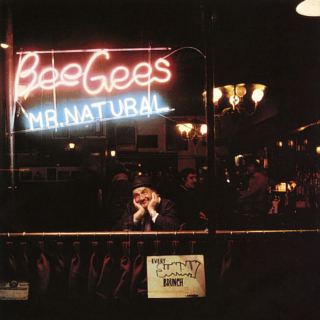
Mr. Natural is the Bee Gees' twelfth album(tenth worldwide) released in May 1974. It was the first Bee Gees release produced by Arif Mardin, who was partially responsible for launching the group's later major success with the follow-up album Main Course. The album's rhythm and blues, soul, funk, and hard rock sounds initiated the group's reinvention as a disco and blue-eyed soul act, which would solidify on subsequent albums. However, Barry Gibb has said that the album was "whiter" than Main Course. The cover photograph was taken at 334 West 4th Street, Greenwich Village, New York City by Frank Moscati, which is today known as The Corner Bistro tavern.

Horizontal is the fourth studio album by the Bee Gees, and their second album to receive an international release. The LP was released in early 1968, and included the international hit singles "Massachusetts" and "World". On 5 February 2007, Reprise Records reissued Horizontal with both stereo and mono mixes on one disc and a bonus disc of unreleased songs, non-album tracks, and alternate takes. The album was released in Polydor in many countries and on Atco only in the US and Canada. "And the Sun Will Shine" was released as a single only in France. The influences displayed on the album range from the Beatles to baroque pop.

The Bee Gees Sing and Play 14 Barry Gibb Songs is the debut studio album by the Bee Gees. Credited to Barry Gibb and the Bee Gees, it was released in November 1965 on the Australian Leedon label. It is a compilation of most of the Gibb brothers' singles that had been released over the previous three years in Australia, which accounts for the many different styles of music on it.
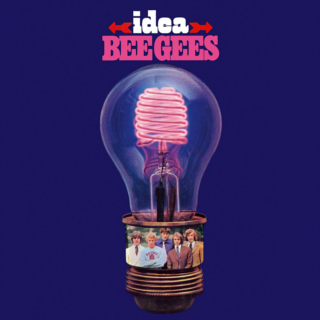
Idea is the fifth album by the Bee Gees. Released in September 1968, the album sold over a million copies worldwide. The album was issued in both mono and stereo pressings in the UK. The artwork on the Polydor release designed by Wolfgang Heilemann featured a "beehive" neon lightbulb with a group photo in its base, while the North American ATCO release designed by Klaus Voormann featured a composite head made from each band member. It was their third internationally released album – the first two albums being released only in the Australian market.
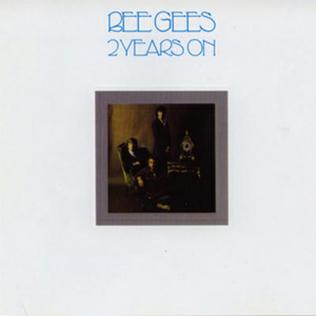
2 Years On is the eighth studio album by the Bee Gees, which reached No. 32 on the US charts. Released in 1970, the album saw the return of Robin Gibb to the group after an earlier disagreement and subsequent split following Odessa. 2 Years On was the first album with drummer Geoff Bridgford, who remained a full-time member of the group until 1972 although he was not pictured on the sleeve. The best-known track is "Lonely Days". Released as the first single by the reunited brothers, it charted high in the US, but peaked at No. 33 in the United Kingdom.

To Whom It May Concern is the tenth album by the Bee Gees. Released in October 1972, it is the follow-up to, and continues the melancholic and personal sound of its predecessor, Trafalgar. The album was recognised as "a farewell to the old Bee Gees" as the album marked the end of an era for the group in several ways: it was their last album to be recorded solely at IBC Studios, in London, their last with conductor and arranger Bill Shepherd, who had guided them since 1967, and their last under their first contract with Robert Stigwood. Some of the songs were old ones finished or rewritten for the occasion.

Life in a Tin Can is the Bee Gees' eleventh studio album, released in January 1973.
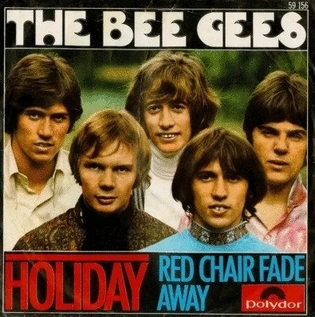
"Holiday" is a song released by the Bee Gees in the United States in September 1967. It appeared on the album Bee Gees' 1st. The song was not released as a single in their native United Kingdom because Polydor UK released the single "World" from their next album Horizontal.
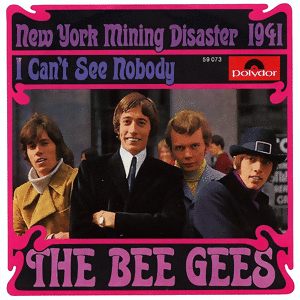
"New York Mining Disaster 1941" is the debut American single by the Bee Gees, released on 14 April 1967. It was written by Barry and Robin Gibb. Aside from a moderately successful reissue of their Australian single "Spicks and Specks," it was the first single release of the group's international career and their first song to hit the charts in both the UK and the US. It was produced by Ossie Byrne with their manager Robert Stigwood as executive producer. The song was the first track of side two on the group's international debut album, Bee Gees' 1st. This was the first single with Australian drummer Colin Petersen as an official member of the band.

"World" is a song by the Bee Gees, released in 1967 as a single in the United Kingdom and Europe and then included on their album Horizontal the following year. Though it was a big hit in Europe, Atco Records did not issue it as a single in the United States, having just issued a third single from Bee Gees' 1st, "Holiday".
"Melody Fair" is a song by the Bee Gees, written by Barry, Robin & Maurice Gibb in 1968 and released in 1969 on their album Odessa. It was not released as a single, but this song was played on many radio stations, and was a hit in Japan. Andy Gibb's 1974 group, named Melody Fayre was named after this song. It also featured as the theme to Melody, a British film featuring a number of Bee Gees songs in its soundtrack.

Bee Gees' 1st is the third studio album by the Bee Gees, and their first international full-length recording after two albums distributed only in Australia and New Zealand. Bee Gees' 1st was the group's debut album for the UK Polydor label, and for the US Atco label. Bee Gees 1st was released on 14 July 1967 in the UK. On 9 August it entered the UK charts; on that same day, the album was released in the US, and it entered the US charts on 26 August.

Here at Last... Bee Gees... Live is the first live album by the Bee Gees. It was recorded on December 20, 1976 at the LA Forum and was released in May 1977 by RSO Records. It reached No. 8 in the US, No. 8 in Australia, No. 1 in New Zealand, and No. 2 in Spain.
"I Can't See Nobody" is a song by the Bee Gees, released first as the B-side of "New York Mining Disaster 1941". With "New York Mining Disaster 1941", this song was issued as a double A in Germany and Japan, and included on the group's third LP, Bee Gees' 1st. "I Can't See Nobody" charted for one week at number 128 on the Billboard Bubbling Under the Hot 100 in July 1967.

"Every Christian Lion Hearted Man Will Show You" is a song written by Barry, Robin & Maurice Gibb released by the Bee Gees in 1967 on their album Bee Gees' 1st. It was released as the B-side to "Holiday" in the US, Australia and Canada.
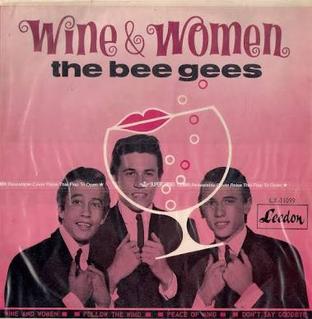
"Wine and Women" is a song written by Barry Gibb, and released by Barry Gibb and the Bee Gees in September 1965 on Leedon Records in Australia. The song's B-side was Follow the Wind. The single reached #19 in Australia, marking the Bee Gees' international chart debut. They achieved this by getting as many of their fans as possible to buy enough copies to get the song into the charts at #35 and, thus, to the attention of disc-jockeys.
"Black Diamond" is a song by the Bee Gees released on the album Odessa in 1969. The song was written by Barry, Robin & Maurice Gibb and featured lead vocals by Robin Gibb. It was included on the compilation Marley Purt Drive released in 1970.

"Lamplight" is a song by the Bee Gees, released as the B-side of "First of May", but featured as the single's A-side in Germany. It also featured on their double album Odessa in March 1969. The song was written and composed by Barry, Robin & Maurice Gibb and featured lead vocals by Robin Gibb. No other singles were released from the album, and the fact that the group's manager Robert Stigwood chose "First of May", which only featured Barry Gibb's voice for the A-side, that caused Robin to quit the group.
"Close Another Door" is a song written by Barry, Robin and Maurice Gibb and recorded by the Bee Gees, initially released as the B-side of "To Love Somebody" and later on their 1967 album Bee Gees' 1st.















